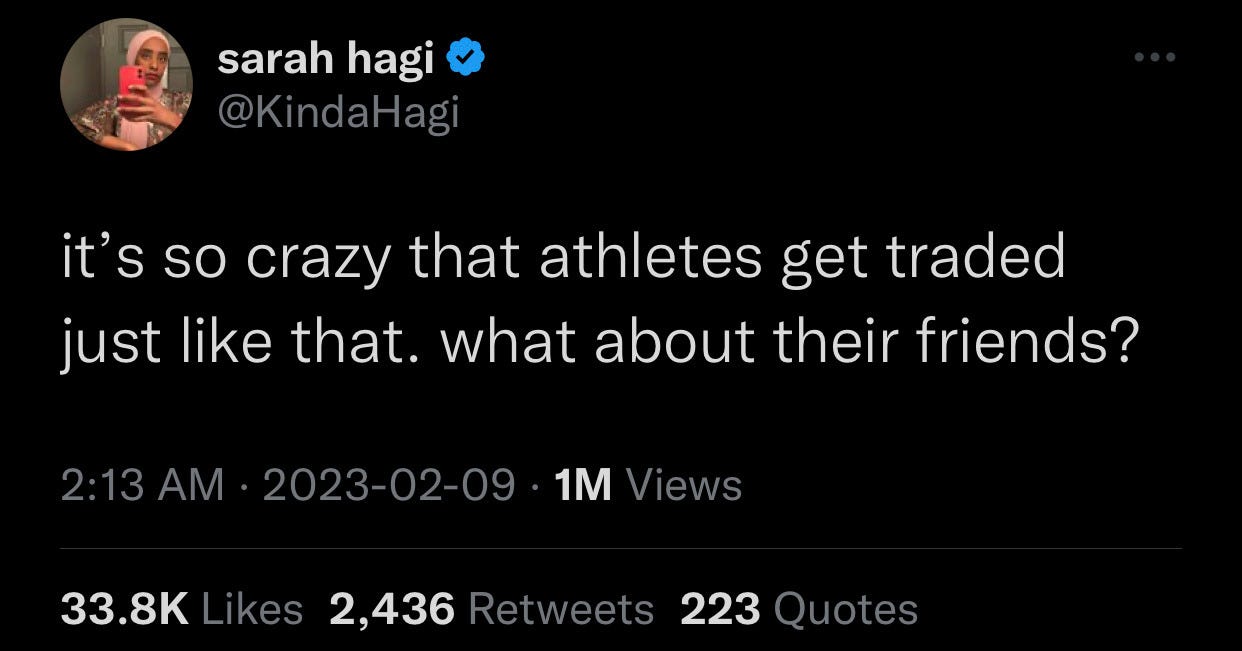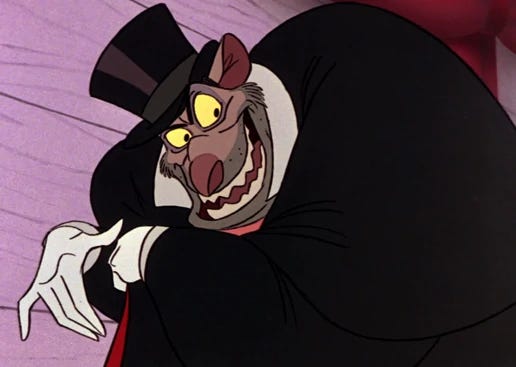I'd like him to dance up on me, specifically
On the artistic shortcoming of Magic Mike's Last Dance
A few weeks ago, my friend Emily hosted a screening of Magic Mike’s Last Dance at the Alamo Drafthouse here in Brooklyn. I went in ready to be entertained by the continuing adventures of Mike, a Floridian dancer and furniture maker with a heart (and abs) of solid gold. I did not actually watch the first Magic Mike, because I’d heard it was depressing—my friend Debbie said that it was more about the 2008 financial crisis than anything else, and since I lived through the first financial crisis, I didn’t really see the point in reliving it through a stripper movie. But its sequel, Magic Mike XXL, was, in my opinion, absolutely perfect: a fun movie about committing to yourself, your art, and making people happy through the fine art of shaking your booty.
In Magic Mike XXL, Mike and his friends from his stripping days road trip across Florida to attend some kind of convention of strippers—honestly, that’s not important. What is important is that XXL had characters—people you learn to care about, and Last Dance…. does not.
You don’t even really care about Mike in Last Dance. He is barely the hero of this film. He’s in London putting together a stage show? Because Salma Hayek’s character Max asked him to? To get back at her nitwit ex-husband? Sure! He drifts through the film, reacting to whatever plot contrivances pop up, and instead of the lovable group of actual people we grew to know and love in XXL we get a mostly-anonymous cast of New Guys. Do the new guys have names? Sure! I don’t remember them.
Last Dance failed for me because it wasn’t specific. Specificity leads to universality, in my opinion. The more specific and real a character or scenario is, the more we can relate to it—even if it’s completely outside of our own experience or background. Take the recent A24 hit movie Everything Everywhere All At Once. It’s achieved near-universal acclaim from audiences who have found something in the movie that speaks to them, because of not despite it being about a family with an extremely specific background. Michelle Yeoh and Ke He Quan play Evelyn and Waymond, a married immigrant couple who own a laundromat. They’ve fucked up their taxes. They’ve drifted apart. Their daughter Joy (Stephanie Hsu) is gay, caught between cultures, and has an extremely fraught relationship with her harried mother.
The circumstances might be different from my own upbringing and background, but the struggles Joy has getting through to Evelyn—and vice versa—were extremely relatable. Had the directors (the Daniels) tried to flatten it out—to appeal to a more “universal” audience by changing or whitening up any of the aspects of Evelyn and Waymond and Joy’s lives—it would have been a much, much less appealing movie.
That’s what happened with Last Dance, I think. Apparently Stephen Soderberg was inspired by watching Channing Tatum put together the real-life London stage show of Magic Mike XXL, and so decided to make one of his “process movies” about it. But we don’t care about the Italian street dancer or any of the randos that get cast in the show, because we don’t know them. They’re just types—they’re not specific.
I was seriously tempted to subtitle this newsletter “Whither Big Dick Richie?” and refrained only to spare your spam filters, but really: where the fuck is Big Dick Richie? And Tarzan? and Tito? The fact that XXL made me care about characters named Big Dick Richie and Tarzan is a testament to how specificity in character building makes for a more compelling story. (Go watch the gas station scene. I’ll wait.)
The dancing in Last Dance isn’t even horny. There! I said it! Last Dance is like if All That Jazz were extremely boring, or if the characters in the Fast and the Furious movies cared about road safety. Last Dance is replete with wasted opportunities for something interesting to happen. For example: there’s an obligatory “evil ex does something to endanger the show” moment, when Max’s ex husband’s mother figures out a way to keep the show from being produced. If this were a better, more specific movie, we would meet the mother. We would see how she resents Max but is also a lonely person, trying to exert control in her aging years, and then one of the New Guys would show her the error of her ways through the power of sensual dance. But no! She presumably gets her way and the show closes, because this subplot is never mentioned again.
Even the notes that should be specific and fun just end up being puzzling. For example, Max’s married name is Rattigan, which is displayed in extremely large neon letters behind the dancers during various parts of the show. And all I could think of every time they said her name or it appeared on screen was this guy:
Yes, that’s right! Professor Ratigan, from the iconic film The Great Mouse Detective! If I am thinking about a cartoon rat during your sexy dance movie, you have failed.
All of which is to say: when you’re writing a story, be specific. Don’t try to hold back details because you want more people to be able to relate to the characters. By aspiring to universality all you achieve is boredom.
WHAT I’M READING
I’m currently reading Sixteen Ways to Defend a Walled City by KJ Parker, and I’m honestly not really enjoying it. And you know me—I love a siege. The premise is that the capital city of a large, Rome-style empire is under attack from unknown forces and all the army are dead or gone except for one guy, who is an engineer from one of the minority groups in this empire. This guy (Orhan) is Extremely Capable, and those with a competence kink might find his ability to solve any problem with limited resources compelling. There is a piece of world building happening that is absolutely not working for me, however: in this empire, the empire is ruled by a race of blue-skinned people, while the oppressed people are white (“milkface” is a slur in this world.) I think this was an effort to…not be racist? i.e., How can it be racist if the people in power are the people of color? Well… if the only guy who knows what’s going on or how to solve all the problems is white, that’s… kind of not it. It feels like An Effort Was Made and instead, the author just made a circle back to something racist. Which is a real shame, because there are aspects of the book that are very good. I just can’t get past it!
HOUSEKEEPING
I’m available on Reedsy, around on the AFN Discord, and actively neglectful of Twitter. Come say hi!
THIS WEEK IN HOCKEY
The trade deadline for the NHL has come and gone, and with it, the last of my joy and hope. Well, not hope—the Capitals are looking pretty good with the recent new infants they’ve acquired. But did they have to trade Dmitry Orlov to get them? Or Lars Eller? Come on! At least I have these pictures of Nicklas Backstrom walking a cat as consolation.


READING: Sixteen Ways to Defend a Walled City by KJ Parker
WATCHING: Crash Landing On You (yes, again)
LISTENING: jhope “on the street” with j. cole
This has been A Faster No, a dispatch on publishing, writing, books, and beyond. Is there something you’d like me to talk about? Leave it in the comments or reply to the email! You can support the newsletter here. If you purchase a book from any of the links to Bookshop.org I get a small commission at no cost to you. I am available for developmental editing and editorial assessment services via Reedsy.





I highly recommend *not* reading the sequels to 16 Ways—they read like he heard the criticism about none of his female characters having names or agency and decided to double down.